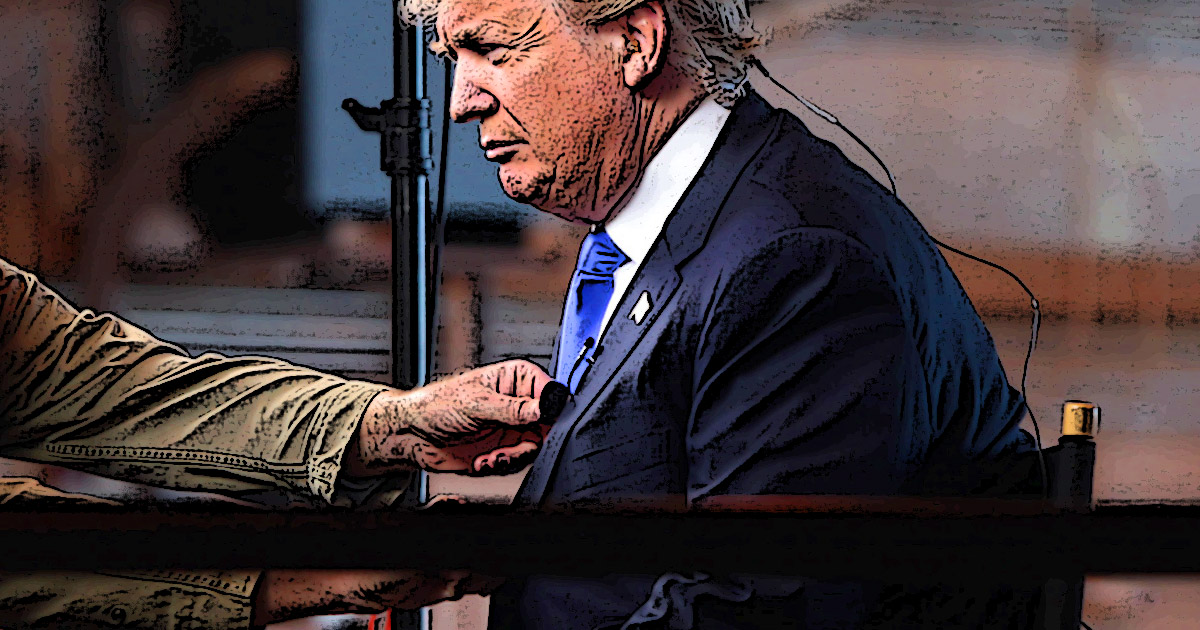Virginia delegate Beau Correll won’t cast his first ballot vote at the Republican National Convention for Donald Trump, and won’t go to jail, either.
As discussed last Thursday, at issue is a state statute requiring* delegates to vote for the plurality winner of the party’s primary. On the Republican side, that’s Mr. Trump. Yesterday, Federal Judge Robert Payne ruled the law unconstitutional, no law at all, because it violates Correll’s First Amendment rights to speak and associate politically.
“In sum, where the State attempts to interfere with a political party’s internal governance and operation,” the federal judge wrote, “the party is entirely free to ‘cancel out [the State’s] effort’ (Def. Resp. 28) even though the state has expended financial and administrative resources in a primary.”
Love ’em or hate ’em, political parties are private associations, properly protected by the First Amendment.
But is it fair to hold primary elections, at taxpayers’ expense, and then ignore the votes of so many people?
Easy answer: NO.
Sure, Judge Payne correctly struck this statute, but it doesn’t follow that states must foot the bill for party primaries and national conventions or provide legal preference. Up to now, incumbent politicians have quietly legislated a relationship of too-friendly collusion between government and the major parties.
It’s time for citizens to look at initiatives to mandate separation of political party and state.
More immediately, the implications for the coming GOP convention in Cleveland are obvious and far-reaching. “The Court’s decision,” as Correll’s attorney David Rivkin summarized, “follows more than 40 years of precedent in firmly rejecting Donald Trump’s legal opinion that delegates are obligated by law to vote for him.”
The delegates are free.
This is Common Sense. I’m Paul Jacob.
* Penalty for non-compliance? One year in prison.
Original photo credit: Gage Skidmore on Flickr


7 replies on “A Private Party”
As is increasingly common, the judge got it exactly backward: Because the Republican Party IS a private organization, it can set whatever rules it and its members agree to. Including having the delegates vote as they were instructed.
Yes, state law is invalid for private organizations — although of course that is not de facto true in our almost totally fascistized country. (Private clubs, for example, cannot set restrictions as to membership.)
But the private organization, if this were a free country, should of course be able to set rules as to delegate behavior.
And, yes, taxpayers should never have to pay for those private organization’ elections or, worse, conventions.
Michael,
The judge’s ruling was with respect to the Virginia law requiring the delegate to vote for Trump, not the party convention rule requiring the delegate to vote on the first ballot — IF he votes on the first ballot, which the rules do not require him to do — for Trump.
Three things about that convention rule:
1) The convention delegates make the rules, and can modify those rules as they see fit;
2) The convention delegates can also suspend the rules at will; and finally
3) As I mention above, no convention rule requires any delegate to vote at all.
IF a delegate votes on the first ballot, he or she is required to vote for the candidate to whom a state primary or caucus bound him or her.
If a delegate doesn’t vote on the first ballot, it doesn’t violate a rule. The rules do, however, require a nominee to get a majority of votes ENTITLED to be cast, not just a majority of votes ACTUALLY cast. If enough delegates abstain on the first ballot to keep Trump from getting the required majority, no delegates are bound on the second ballot.
Of course, there’s another applicable rule: No candidate’s name may be placed into contention for the nomination who did not carry at least eight states. Which means, under the rules, that the nominee must be either Donald Trump or Ted Cruz.
IF the delegates push it to a second ballot in that way, it will be interesting to see if one of those two prevails or if there will be enough continued abstentions to bring on an eventual (presumably after several ballots) suspension of the rules to either allow additional candidates or get rid of the “majority of ENTITLED votes” requirement.
Will any of the above happen? Who knows?
I’m certain that Hillary will be very pleased…
On the one hand, I expect that if there is a delegate revolt and the nomination is taken from Trump, the GOP can kiss this presidential election goodbye.
On the other hand, I expect that the GOP establishment would rather lose the election than win it with Trump.
The convention wisdom is that Clinton beats Trump. I disagree. I believe that Trump would carry every state Romney carried, plus Michigan, Ohio, Pennsylvania and Florida, that he would be at least marginally competitive in New York and New Jersey (enough to make the Democrats invest more heavily than usual there), and that he might even menace the blueness of California (I don’t think he’d carry it, just be more popular than recent GOP nominees). I don’t LIKE Trump and won’t be voting for him (or for Clinton), but that’s my read on the horse race.
Even members of the electoral college can vote for a candidate other than the one who wins their state.
That’s true. There have been ‘faithless electors’ in the past. However, it’s my understandng that the electors are people who have pledged to vote for the candidate. Our vote for a candidate is really a vote for a slate of electors. Usually, one or two ‘faithless electors’ (they essentially lied when they agreed to vote for the winning candidate) do no damage, since their vote won’t change the results. However, if the GOPe sanctions this on a large scale then, whether or not it affects the outcome, the GOP is toast. The GOPe will have to find another line of work.
Free country. Private corporation. Give parties a choice. If they choose to not be beholden yo the vote of the taxpayers, then let them fund their own subsequent primary next time around. See how much political traction that they end up with having to rent facilities and pay personnel and how much that leaves them in the way of campaign funds afterwards.
If they choose to break the trust of the public, the public should have no trouble finding other parties willing to make a solid commitment.
Nothing sacred about a Republican in Name Only Party.